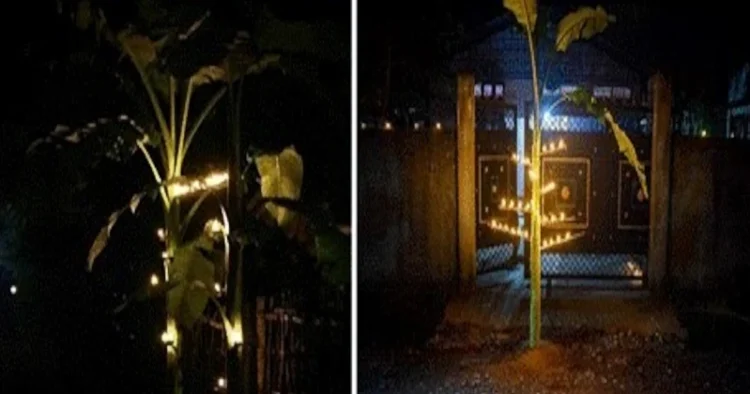Swachh Bharat Mission-Urban under the aegis of the Ministry of Housing and Urban Affairs is running the ‘Swachh Deepawali, Shubh Deepawali’ campaign across the country.
Cities are focusing on celebrating an eco-friendly Deepawali by signing up for the Swachh Deepawali Signature campaign and pledging to use locally made products, donate unused, old items to RRR Centres, and using eco-friendly alternatives of single-use plastic.
Under the campaign, Assam has taken a unique initiative to manage the waste that occurs post-Deepawali. Traditionally, on Deepawali in Assam, people light earthen lamps on banana trees and leaves at the entrances of residential and commercial establishments.
For this, the stems of the banana tree used on Deepawali night are of no use the next day.
The Swachh Bharat Mission-Urban team in Assam has made a special plan to eliminate waste post-Deepawali. To avoid this, a simple waste management process has been adopted by the urban local body.
To ensure post-Diwali cleanliness, Assam has adopted the principle of the 3 Rs to transform ‘waste to food’. The banana trees, stems, and leaves that will be left unused the next day after the traditional Diwali celebrations will be handed over to the national parks around urban local bodies for use as fodder for elephants.
Where there are no national parks in the vicinity, the citizens will cut the banana trees into small pieces and hand them over to the urban local bodies for disposal.
From there, the municipal staff will hand over the stems of these trees to cow shelters or ‘waste to compost’ pits located in the centre.
To eliminate such waste, there are already 104 central compost pits at various places and over 6000 domestic composting pits.
(with inputs from ANI)




















Comments